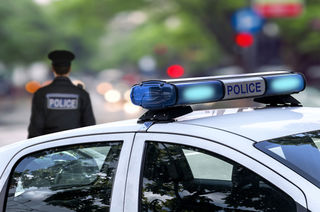Post-Traumatic Stress Disorder
What Do Cops Believe?
PTSD and the necessary but unrealistic beliefs cops need to do their jobs.
Posted August 14, 2018

Law enforcement officers (LEOs), have to believe in themselves to do their jobs; jobs that are often dangerous, dirty, disturbing, and under-appreciated. Cops believe themselves to be problem solvers—action-oriented in the service of responding to emergencies; able to maintain clarity and effectiveness under stress; always in control of their environments, their actions and their emotions; able to effectively control people in crisis; unaffected by gruesome events; capable of effecting positive outcomes, no matter the circumstances; and comfortable in the knowledge that people are better off when they respond.
But, with time on the job, the confidence, idealism, and service-orientation they once had gets bruised and battered. True, law enforcement officers (LEOs) get paid to protect and serve. But they also get paid to do things people hate them for—making arrests, giving traffic tickets, controlling crowds, and using physical, sometimes, deadly force. They do and see things that most people couldn't handle and would rather not know existed, like child abuse and human trafficking. They can't share these experiences, because few people beyond their fellow responders can tolerate talking about them. They are deprived of the full range of human responses and must remain under strict emotional and physical control in all situations, no matter how frightening or repulsive. Perhaps saddest of all is the realization that it makes no difference how hard they try or how much they prepare—with few notable exceptions, LEOs are unable to prevent tragedy or change the circumstances that lead to tragedy. Sometimes a call was messed up from the moment they got it: The driver was drunk, the noose had tightened, the gun was fired, the child was hit, the victim was dead before he hit the ground.
This is reality. Officers who hold onto these necessary but unrealistic beliefs are at risk for blaming themselves for something over which they had no control. They hold themselves to a standard of perfection that is hard to achieve or maintain. Police work is complex and demanding, impossible to do perfectly. This doesn't relieve officers or their departments of accountability or from aiming for the highest standards of performance. Behavior is best understood in a real context. Unrealistic expectations set everyone up for failure, officer and community alike. When counseling cops, particularly those in the throes of self-blame or suffering from post-traumatic injuries, I remind them that good cops often get the crook, win the fight, save the victim. But not always.
References
Kirschman, E., Kamena, M., & Fay, J. (2014) Counseling Cops: What Clinicians Need to Know. New York, Guilford Press.


